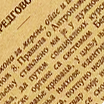АДОРНОВА РАНА ТЕОРИЈА ДРУШТВА И МУЗИКЕ (1928-1934)
ADORNO’S EARLY THEORY OF SOCIETY AND MUSIC (1928-1934)
Author(s): Dragana Jeremić Molnar, Aleksandar MolnarSubject(s): Music, Evaluation research, Social Theory, Interwar Period (1920 - 1939), Sociology of Art
Published by: Српско социолошко друштво
Keywords: Adorno; revolution; society; music; dodecaphony; workers class;
Summary/Abstract: The purpose of the authors in the article is to contextualize Adorno’s early theory of society and music in his experience of Weimar Republic and Third Reich. The importance of the revolution in his first outline of sociology of music is especially stressed. At he beginning this period, it was the revolution of the workers class that he was trying to reconcile with the dodecaphonic revolution in music (which he believed he had already witnessed in Wienna while studying with Alban Berg). But, his attitude changed towards the end of Weimar Republic and at the beginning of Third Reich (Adorno left Germany in April 1934) and he separated the paths of two revolutions, arguing that the revolution of the workers class could be pursued by the means of “vulgar bourgeois” choral music (with new lyrics).
Journal: Социолошки преглед
- Issue Year: 45/2011
- Issue No: 3
- Page Range: 351-372
- Page Count: 22
- Language: Serbian

